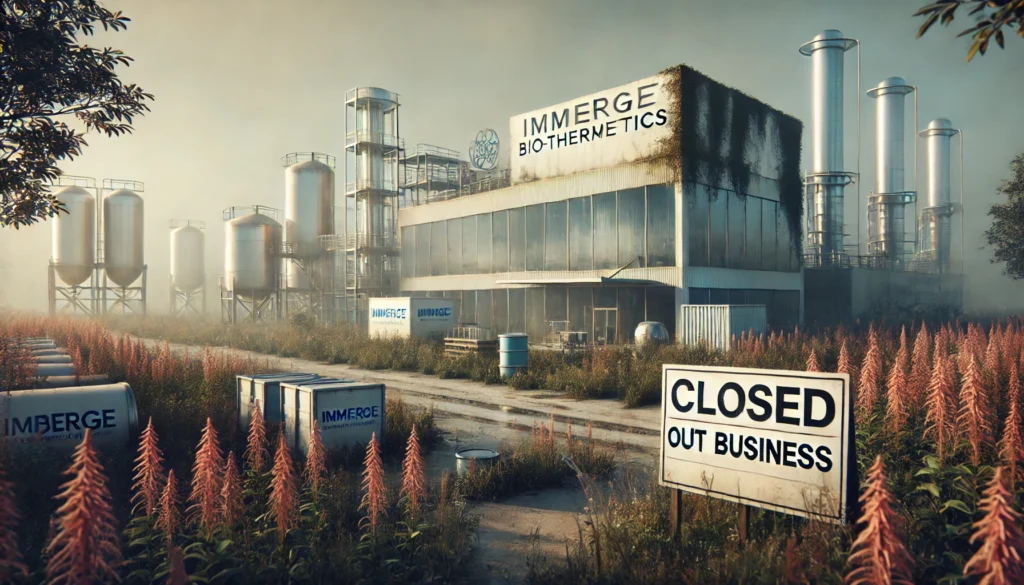Immerge Biotherapeutics was once a beacon of hope in the field of xenotransplantation, a revolutionary branch of biotechnology aiming to use animal organs for human transplants. Established in 2000 as a joint venture between BioTransplant Incorporated and Novartis AG, the company aimed to solve the growing demand for organ transplantation. Despite its groundbreaking research and ambitious goals, the company faced significant challenges that ultimately led to Immerge Biotherapeutics out of business.
What Was Immerge Biotherapeutics?
Immerge Biotherapeutics focused on developing genetically modified miniature swine as potential organ donors for humans. This innovative approach aimed to overcome the critical shortage of human organ donors while addressing issues like organ rejection. The company’s early work positioned it as a pioneer in xenotransplantation, attracting significant attention from the scientific community.
The venture combined BioTransplant’s expertise in immunology and Novartis’ financial backing and resources. Together, they made promising strides in modifying swine genetics to make organs compatible with human biology. However, this ambitious mission eventually faced hurdles, leading to Immerge Biotherapeutics out of business.
Timeline of Key Events
- 2000: Immerge Biotherapeutics was founded as a joint venture between BioTransplant and Novartis.
- 2002: The company achieved critical milestones in xenotransplantation, including breakthroughs in reducing organ rejection in preclinical trials.
- 2003: BioTransplant filed for Chapter 11 bankruptcy, creating financial instability within the partnership.
- 2003-2007: Novartis assumed full control of Immerge BioTherapeutics, continuing research but gradually shifting priorities.
- 2007: Novartis discontinued its xenotransplantation research, officially making Immerge Biotherapeutics out of business.
Why Did Immerge Biotherapeutics Go Out of Business?
Several factors contributed to the downfall of Immerge Biotherapeutics:
- Financial Challenges: The bankruptcy of BioTransplant in 2003 disrupted the company’s funding and operational stability.
- Shifting Corporate Priorities: As Novartis took over full control, the company redirected its focus and resources to other areas of biotechnology.
- Regulatory and Ethical Hurdles: Xenotransplantation faced significant regulatory scrutiny and ethical debates, slowing progress and increasing costs.
- Scientific Complexity: The challenges of modifying swine genetics and ensuring organ compatibility with humans were more complex than initially anticipated, delaying commercialization.
These challenges culminated in the decision to discontinue operations, leaving Immerge Biotherapeutics out of business.
Impact of Immerge Biotherapeutics’ Closure
The closure of Immerge Biotherapeutics marked a significant moment in the field of biotechnology. The company’s exit left a gap in xenotransplantation research, slowing advancements in this promising area. However, its work laid the foundation for ongoing studies and inspired other companies to explore similar technologies.
Today, researchers continue to build on the groundwork laid by Immerge Biotherapeutics, with advancements in CRISPR gene editing and immunology reigniting hope for xenotransplantation’s future. Despite being out of business, Immerge Biotherapeutics’ contributions remain an integral part of the field’s history.
Lessons Learned
The story of Immerge Biotherapeutics out of business offers valuable lessons for the biotechnology industry:
- Sustainable Funding: High-risk, high-reward ventures require long-term financial stability to succeed.
- Adaptability: Companies must balance innovation with practical considerations, such as regulatory compliance and market feasibility.
- Collaboration: Strategic partnerships are essential but require alignment in goals and resources to endure challenges.
Conclusion
The rise and fall of Immerge Biotherapeutics is a testament to the challenges of pioneering new frontiers in biotechnology. While the company is no longer operational, its contributions to xenotransplantation have left an enduring legacy. The story of Immerge Biotherapeutics out of business serves as both a cautionary tale and a source of inspiration for the next generation of innovators in biotechnology.
Frequently Asked Questions (FAQs)
What was Immerge Biotherapeutics?
Immerge Biotherapeutics was a biotechnology company focused on xenotransplantation, aiming to use genetically modified animal organs for human transplantation.
Why did Immerge Biotherapeutics go out of business?
The company faced financial challenges, regulatory hurdles, and shifting priorities from its parent company, Novartis, leading to its closure in 2007.
What is the significance of Immerge Biotherapeutics’ work?
Despite going out of business, Immerge Biotherapeutics laid the groundwork for advancements in xenotransplantation, inspiring future research in organ transplantation.
When did Immerge Biotherapeutics shut down?
Immerge Biotherapeutics officially ceased operations in 2007 after Novartis discontinued its xenotransplantation research.
What is the current state of xenotransplantation research?
Xenotransplantation has progressed with advancements in gene editing and immunology, building on the foundation set by pioneers like Immerge Biotherapeutics.
Recommended Article:
Nettoyage Vigon Borad Technique: Everything You Need to Know
google business profile kgmid extractor: A Complete Guide
Fameblogs Email Contact Details: Everything You Need to Know


